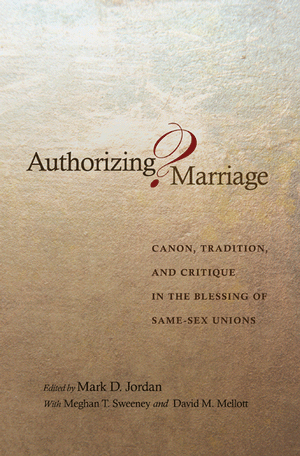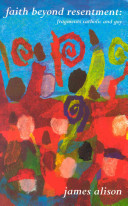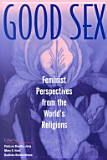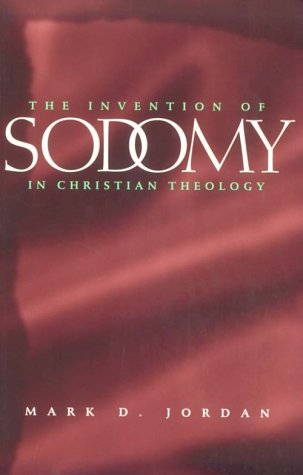Though the material for this project was introduced primarily through Summer Academy and assigned readings, we must return to GLBT Week 2006 as the beginning place of a shift that has taken place in my thought. I am not sure that I had ever heard the term "heterosexism" before Mary Hunt introduced it in her lecture entitled "Feminist Theo-ethics: queering imagination and action." But as I made preparations for the new LTS Allies website and digitized the available lectures given at previous GLBT Week celebrations, I found "heterosexism" to be a term that had also emerged in the language of Christine Smith and Virginia Ramey Mollenkott in preceding years. Patricia Beattie Jung and Ralph F. Smith define heterosexism as "a reasoned system of bias regarding sexual orientation which denotes prejudice in favor (privilege) of heterosexual people and prejudice against bisexual and particularly homosexual people" in matters of law, economics, politics, custom, ethics, religious life and commerce (13, 14). These authors are very careful to distinguish between homophobia – an unreasoned and irrational fear/hatred of homosexuals – and heterosexism, which implies no fear at all, but instead the privilege afforded to perceived heterosexuals over their queer neighbors. Within the discourse of the LTS community we have made a point of strongly urging people to speak of heterosexism rather than homophobia. [Instructor Comment: I hope many hear this message!]
Category: Seminary Papers
Reflections on Authorizing Marriage?
In the volume Authorizing Marriage?: canon, tradition, and critique in the blessing of same-sex unions, authors from the Jewish and Christian perspectives were asked to reflect on a set of questions regarding voices within the Judeo-Christian canon which may speak to questions of same-sex relations (including erotic union), bases for justifying same-sex unions from scripture, liturgical practice and religious law, and the possible ways of using exegesis and theological reflection to legitimate any new same-sex constructs (Jordan 1). The authors approach their work from several points of view: biblical interpretation, Greek philosophical influences within Rabbinic Judaism and Christianity, liturgical rites associated with marriage, and theological assessments of current discourse surrounding same-sex relationships (Jordan 1-2). What follows are a few reflections sparked by the essays in this volume.
Reflections on Faith Beyond Resentment
Of all the material that I have read for this independent study, I have found Faith Beyond Resentment: fragments Catholic and gay to be the most thought-provoking.[1] I am not sure whether this is because of my own lack of familiarity with Catholic theology or perhaps because so much of what Alison has to say is fresh and new. Based on the responses that I have seen from accomplished theologians and people much more familiar with Catholic theology, I am inclined to believe he has added something new to the conversation by applying Girard’s theories to the gay question within Catholic discourse. However, Alison’s insights are not narrowly related to LGBT issues only, but rather can be adapted to larger questions of group dynamics within the Church and personal identity in a life of faith. In the paper I will reflect on a few key insights from the text that have helped me to review certain events in my own life from a different point of view.
Apokatastasis in the Thought of Origen and Gregory of Nyssa
Repent therefore, and turn to God so that your sins may be wiped out, so that times of refreshing may come from the presence of the Lord, and that he may send the Messiah appointed for you, that is, Jesus, who must remain in heaven until the time of universal restoration (αποκαταστασις) that God announced long ago through his holy prophets. Acts 3:19-21 (NRSV)
In many quarters of the Church today sincere Christians are raising questions regarding the rationale behind decreeing eternal punishment for temporal mistakes, for consigning human souls to unending fire as the penalty for decisions made in a fleeting life upon the earth. Though most Christians acknowledge the infinite love and mercy of God, we are often stymied when we contemplate the apparent contradiction between the God of love and the God of justice. We have been taught that there are eternal consequences for our actions and that the day is coming when the trees that produce no fruit will be chopped down and cast into the fire (Matthew 7:19). If God is just, we are prone to ask, how can unrepentant sinners share in the gift of eternal life in the Kingdom? The idea of sharing heaven with the likes of Adolph Hitler, the child molester down the street, or in some extreme cases even the folks from the other political party is repugnant to many who feel that salvation is attained by following a certain teaching or by participating in a defined set of sacraments. But for a growing number of questioning voices in the Western Church the idea of eternal punishment seems simply unworthy of God.
Continue reading "Apokatastasis in the Thought of Origen and Gregory of Nyssa"
Poverty as a Spiritual Value
In the outlook of several medieval Christian movements poverty was seen as a spiritual value. For some the rejection of material wealth was viewed as a fulfillment of Jesus’ instruction to the disciples. For others a life of poverty was a way of more fully identifying with the lowly and dispossessed. Finally, for some the renunciation of wealth was a practice for avoiding temporal entanglements that could interfere with one’s relationship with God.
Looking through and beyond the Everyday toward Eternal Life
The writings of Bernard of Clairvaux, Anselm of Canterbury and Hildegard of Bingen provide us with windows into thoughts of their authors during a time of fruitful activity in medieval monasticism. Using references familiar to their readers, each author attempts to look through and beyond the expected, pointing the way to a spiritual value that leads the follower along the path to heaven.
Continue reading "Looking through and beyond the Everyday toward Eternal Life"
Reflections on Good Sex
The essays in the compilation Good Sex: Feminist Perspectives from the World’s Religions include the views of several Jewish and Christian feminist scholars. Though not all of the authors identify as lesbian, they share similar views and concerns. It is interesting to note that in many ways their unity is found more in their shared gender identity than in their sexual preferences. This is the first feature of these essays that I found striking: there is no analogous "masculist" movement nor a shared set of concerns among gay and straight men that would provide an overarching backdrop in a male-oriented conversation. However, as I reflect on this a possible explanation appears to be that women, whether gay or straight, are able to identify with each other’s oppression within our framework of power dynamics. Straight men, who most often occupy the position of privilege in our society, are less apt to identify with the oppression faced by gay men, as to do so could result in a loss of privilege.
Church Reform in the 11th Century
The eleventh century saw a wave of reformers in the papacy that sought to effect changes in the way that ecclesial authority was realized. A series of popes including Leo IX, Gregory VII and Calixtus II worked to reform the election of church authority by stamping out simony (the practice of buying church offices) and enforcing celibacy for all priests (eliminating heirs to whom power could be passed down). In addition to these reforms, the church sought to establish itself as a separate spiritual authority superior to that of various European monarchs. At the zenith of papal authority, Innocent III enjoyed authority that extended over many of the secular rulers of Europe.
Reflections on The Invention of Sodomy
In The Invention of Sodomy Mark Jordan traces the roots of the term Sodomy from its first appearance in the Middle Ages through a complex evolution witnessed in various religious texts over three centuries. Jordan begins his work by asserting that "the category ‘Sodomy’ [is] problematic no matter where or how it is used" (6). Based on the context provided by each of the texts selected, we find quickly that the meaning of the word Sodomy varies widely.
National Flavors in the Christianization of Europe
As the Christian faith spread throughout Europe its message was received by many disparate tribes. These various groups found identity in ethnic distinctions of shared language and culture. While often serving as barriers or diplomatic challenges, these differences sometimes played key roles in how the gospel was received and spread among a people. The Saxon Gospel provides one such example.
Continue reading "National Flavors in the Christianization of Europe"



